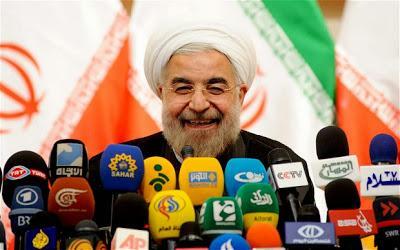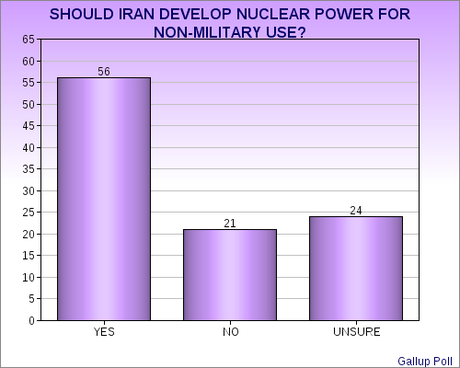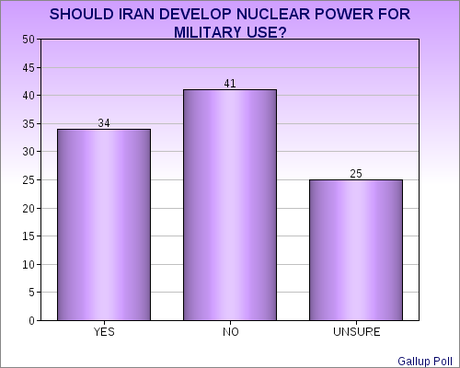 (This image of Iranian President Hassan Rouhani is from The Telegraph.)
(This image of Iranian President Hassan Rouhani is from The Telegraph.)Iran has a new president, Hassan Rouhani, and he is more moderate than his predecessor (and his more moderate views seem to have the acceptance of that country's supreme leader). This gives the U.S. (and other Western nations) a golden opportunity to resolve the issue of Iran and nuclear power, and hopefully end the talk of military action.
President Rouhani has said he wants to resume negotiations with other nations, including the United States, and several countries have taken taken him up on the offer. U.S. Secretary of State John Kerry sounded somewhat optimistic as the talks opened at the United Nations (in Geneva), saying that a door has been cracked open. The countries participating in the new talks with Iran are the United States, Great Britain, France, Russia, China, and Germany.
And a newly released survey shows that the Iranian people would back their new president in an agreement to limit Iran's nuclear power to non-military use. While a majority of them (56%) want to see their government develop nuclear power for non-military use, a plurality says they do not want to develop a military nuclear capability (41% to 34%). This new survey of the Iranian people was done by the Gallup Poll, and was conducted between May 24th and June 6th of 1,000 Iranian adults (and has a margin of error of 4 points).
The last thing the United States needs is to get involved in another military conflict, especially with the ongoing occupation of Afghanistan and the floundering American economy. Our government needs to go the extra mile to make sure these new negotiations have every opportunity to succeed.



